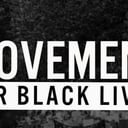New York Times
By JESSICA STERN
OP-ED
CAMBRIDGE, Mass. — As a nation, we have decided that terrorism that results in loss of life should face the possibility of the death penalty. But is this wise?
This question is worth asking, now that four men are being tried in New York for their alleged participation in the 1998 bombings of American embassies in Kenya and Tanzania, which killed 224 people and wounded thousands. Two defendants, Mohamed Rashed Daoud al-‘Owhali and Khalfan Khamis Mohamed, who allegedly worked for Osama bin Laden, could face the death penalty if convicted.
Another terrorist, Timothy McVeigh, is scheduled for execution on May 16 for his role in the bombing of the federal building in Oklahoma City. Mr. McVeigh has refused to appeal his death sentence, preferring, he now says, to have his execution broadcast live on television. Some of his victims worry that Mr. McVeigh will become a martyr, inciting further violence.
One can argue about the effectiveness of the death penalty generally. But when it comes to terrorism, national security concerns should be paramount. The execution of terrorists, especially minor operatives, has effects that go beyond retribution or justice. The executions play right into the hands of our adversaries. We turn criminals into martyrs, invite retaliatory strikes and enhance the public relations and fund-raising strategies of our enemies.
Moreover, dead terrorists don’t talk, while a live terrorist can become an intelligence asset, doling out much- needed information.
Of course, imprisoning, rather than executing, terrorists is not risk-free. Supporters could try to kidnap Americans, and refuse to release them until their colleagues are released. Still, other countries with far more experience in counterterrorism have concluded that imprisoning terrorists is the better option in the long run.
For instance, the United Kingdom in 1973 debated whether to repeal the death penalty in Northern Ireland. By a margin of nearly three to one, the House of Commons decided that executing terrorists, whose goal is often to martyr themselves, only increased violence and put soldiers and police at greater risk. In a highly charged political situation, it was argued, the threat of death does not deter terrorism. On the contrary, executing terrorists, the House of Commons decided, has the opposite effect: It increases the incidence of terrorism.
The Israeli government unwisely creates martyrs with what it calls preventive attacks, in which military or intelligence operatives kill those suspected of terrorism. By contrast, judges in Israel have never sentenced terrorists to death; capital punishment would be dangerous and counterproductive.
Terrorism’s greatest weapon is popular support. We’ve already seen this dynamic at work. After Mr. bin Laden’s 1998 embassy bombings, the United States retaliated by striking a purported chemical weapons facility in Sudan and a few crude camps in Afghanistan. The result? In the extremist religious schools I visited in Pakistan after the attack, Mr. bin Laden had become a hero. Parents named their children after him. Schools and businesses were renamed in his honor.
Does anyone believe that executing his minions will deter Mr. bin Laden from future terrorist attacks? The opposite is far more likely: the United States could become more frequently targeted.
Our most powerful weapon against terrorists is our commitment to the rule of law. We must use the courts to make clear that terrorism is a criminal act, not jihad, not heroism, not holy war. And then, we must not make martyrs out of murderers.
Jessica Stern, a lecturer at Harvard’s Kennedy School of Government, served on the National Security Council from 1994 to 1995.



